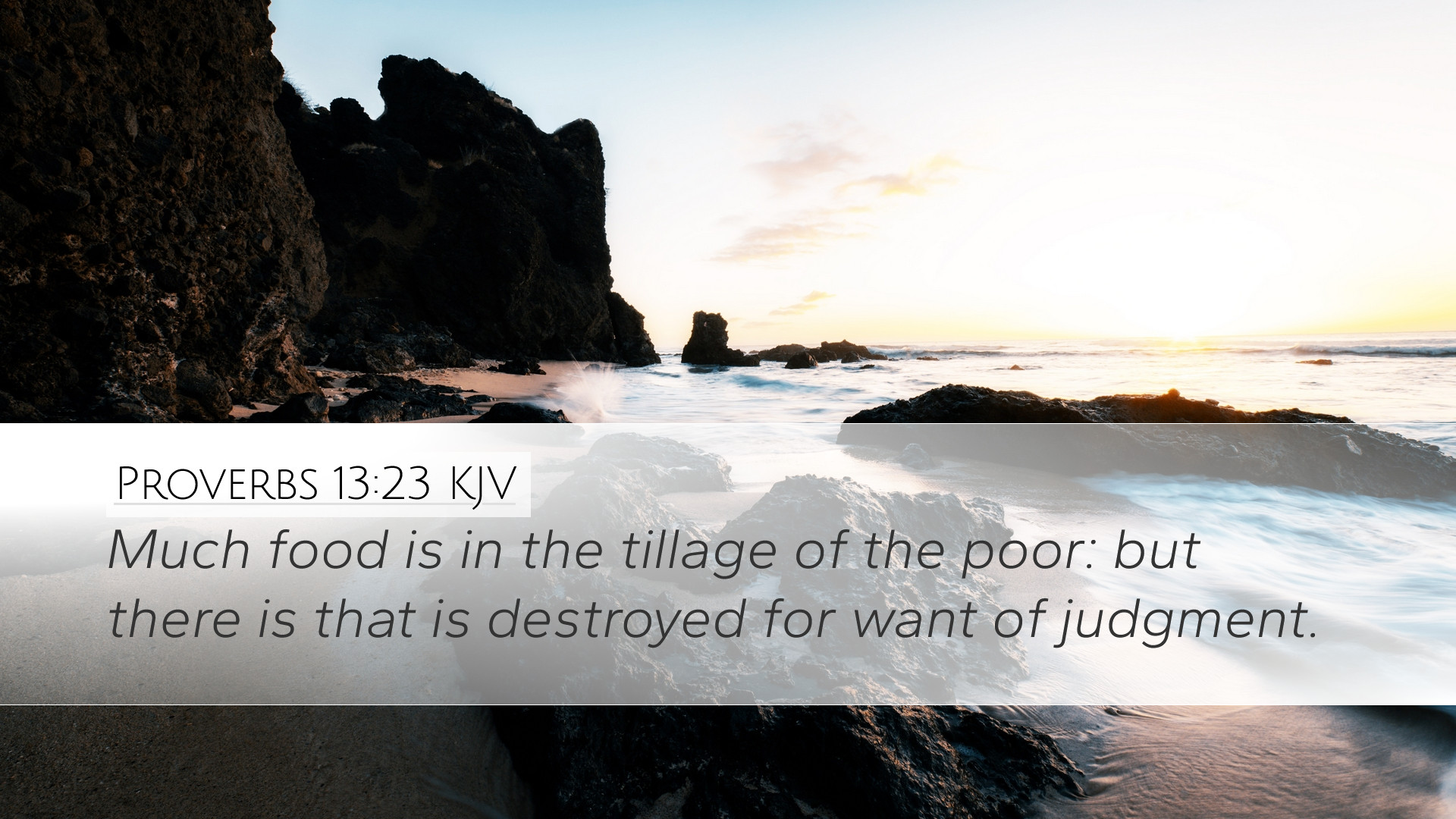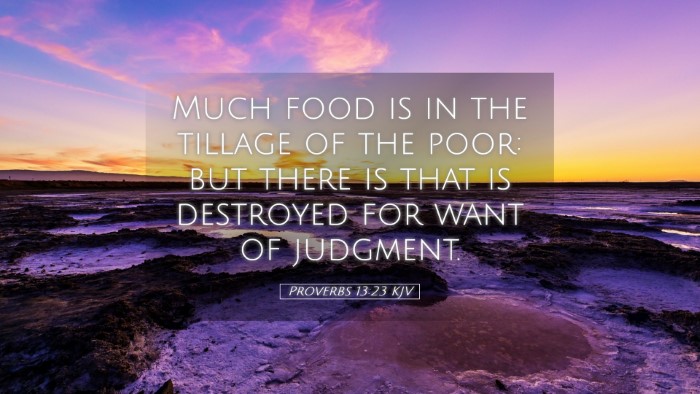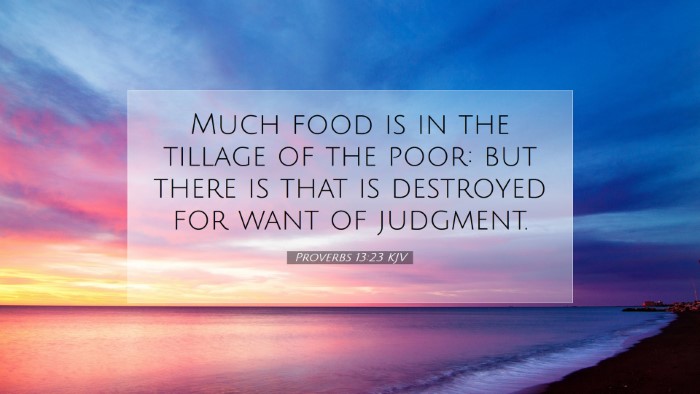Commentary on Proverbs 13:23
Verse Text: "Much food is in the tillage of the poor: but there is that is destroyed for want of judgment."
Contextual Background
The Book of Proverbs is a collection of wise sayings and teachings primarily attributed to King Solomon. It aims to offer practical wisdom on living a righteous life and fostering a closer relationship with God. Proverbs 13 highlights themes of wealth, poverty, and the consequences of human choices.
Exegesis of Proverbs 13:23
This verse contrasts the provision available to the diligent and wise with the consequences faced by those lacking discernment. It reveals profound truths about human effort, divine blessing, and the complexity of economic realities.
Insights from Public Domain Commentaries
Matthew Henry's Commentary
Matthew Henry emphasizes the idea of diligent labor and the prosperity that can come from it. He notes that the "tillage of the poor" signifies the hard work done by the less fortunate to nourish themselves and their families. Henry suggests that there is more abundance found in the humble circumstances where there is diligence and effort than in the lifestyles of the affluent who waste their resources due to lack of wisdom.
- God’s Provision: Henry points out that God provides sufficiently for those who work hard, reflecting a fundamental principle of Divine Providence.
- Judgment and Wisdom: He contrasts the poor, whose labors are fruitful, with those who suffer loss due to "lack of judgment." This signals that intelligence, insight, and prudence are as vital as labor in achieving prosperity.
Albert Barnes' Notes
Albert Barnes also delves into the juxtaposition of the diligent versus the foolish. He discerns that prosperity is not merely a matter of wealth but rather the fruits of labor and wise decisions. He comments on the ruin brought about by negligence and poor judgment, suggesting a divine order wherein each person reaps the consequences of their actions.
- Economic Justice: Barnes reflects on the justice of God as it relates to economic disparity, pointing out that those who labor will ultimately find provision, while the foolish consume their resources without wisdom.
- The Role of Discretion: He notes that wise stewardship and prudent decision-making are essential to avoid destruction, encapsulating the essence of responsible living.
Adam Clarke's Commentary
Adam Clarke interprets this verse with an emphasis on the moral implications of poverty and wealth. He posits that while the poor possess less materially, their effort in tilling the land leads to sustenance. Clarke highlights the necessity of understanding the balance between human action and the blessings of God.
- Tilling and Its Symbolism: The act of 'tillage' symbolizes not just physical labor but the cultivation of wisdom and understanding. Clarke suggests that spiritual and moral diligence yields far greater abundance than mere accumulation of wealth.
- Destruction Through Lack of Judgment: Clarke warns against the pitfalls of excess and the importance of judgment, reiterating that material wealth can lead to ruin if not managed wisely.
Theological Reflection
Proverbs 13:23 unveils the intricate relationship between labor, wisdom, and the providential care of God. In a world where material possessions often overshadow the true pursuit of righteousness, this proverb calls for a introspection regarding how one utilizes the gifts of time, talent, and resources. Pastors and scholars may reflect on how this passage informs modern economic practices and community interactions. The lessons of diligence and prudent judgment stand timeless, guiding not just personal conduct but offering a framework for encouraging a just society.
Application for Today’s Believers
For pastors and teachers, this verse serves as a powerful reminder to instill principles of hard work, responsibility, and wise decision-making within their congregations. It encourages believers to value not just the fruits of their labor, but also to approach life with discernment, recognizing that true abundance stems from both effort and wisdom.
Practical Steps
- Teach Diligence: Emphasize the importance of hard work in various spheres of life, from personal finance to spiritual disciplines.
- Cultivate Wisdom: Encourage regular study of Scripture and engagement with community to hone judgment and decision-making skills.
- Address Economic Justice: Promote discussions around wealth distribution and the ethical management of resources in line with biblical principles.
Conclusion
Proverbs 13:23 serves as a timeless reminder of the connections between labor, resourcefulness, and the sacred responsibility to exercise wisdom. Engaging with this text not only enriches our understanding of Scripture but also equips us to confront the complex realities of contemporary life with faith and discernment.


